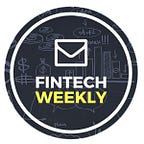How the Cryptocosm powered by Blockchain Impacts Financial Services
Prolific author and thought-leader George Gilder is at it again, redefining the technological landscape in his latest book, “Life After Google: The Fall of Big Data and the Rise of the Blockchain Economy”. The book is a must-read for technologists and fintech enthusiasts looking to better understand the next generation of technology innovation.
by Phil Toth, Founder, Managing Director, QueensGiant
What is the Cryptocosm? Not to be confused with cryptocurrency, Gilder describes the Cryptocosm as a private crypto-key that replaces one’s public identity on the Internet. That key is unique to the individual and acts as a private signature. Most importantly, it is unbreakable by others. It is different than one’s Internet identity in that the property is owned and controlled by the individual rather than giant Internet data aggregators such as Google and Facebook. This decentralized system would replace the current insecure Internet based system using Blockchain.
Mr. Gilder’s Cryptocosm has immense cultural and business implications. Here we focus on how it impacts financial services.
Increased Privacy
Perhaps the biggest change is how the Cryptocosm transfers property rights back to the individual. As it stands, the Internet, dominated by Google, operates by gathering and sharing your personal information. In this system, security is a function of the network, controlled by Google and others, rather than the individual owner of that information. As all this information flows up to Google, the individual transfers ownership without compensation. In turn, that same information is then implemented into algorithms used to sell goods or services and earn advertising revenues for Google. Nothing is for free after all.
In the Cryptocosm, private keys are held by people, not by Google, Facebook or anyone else. Information sharing works by what Gilder refers to as a, “challenge-response interaction” where the challenger takes a public key and encrypts a message. A responder proves identity by decrypting, amending, and returning the message encrypted with their own private key. This is what is known as a digital signature. If challenged, the owner of a private key can always prove ownership of the identity and the contents of a public ledger. Claims of identity fraud and misrepresentation can therefore be challenged by the owner of the private key by proving the records. With a digital signature, the owner can always prove title of property defined by a public key on a digital ledger.
Better Security
A centralized system where thousands of servers hold private information is an obvious security threat. Just think how many companies through their internet-connected servers have your information. Each node in the chain storing your data offers a target for a would-be hacker. Under that paradigm, it is inevitable that data breaches like those at Yahoo, Equifax, eBay and others took place.
Blockchain technology through distributed crypto-keys has the potential of replacing a totally insecure Internet. To that end, thousands of engineers are developing a new system based on this distributed peer-to-peer technology which better protects users from data breaches. A shift away from centralized data makes hackers job incredibly more difficult. That is especially important to financial companies which store vast amounts of sensitive customer information.
Fraud Prevention
Financial transactions are particularly vulnerable to fraud because of the clear financial benefit to the offending party. Complexity also plays a role as transactions often require multiple steps to verify collateral, currency denominations, time-sensitive settlements and other items. The multi-step process offers a series of entry points for fraudsters.
Yet, blockchain’s shared ledger only updates when all parties agree. In this way, verified contributors store, view and share digital information in a secure system, promoting trust and transparency amongst counterparties. Individuals cannot alter their personal information without another party’s consent. Limiting this potential solves a massive problem for banks, customers and merchants alike with estimated annual costs related to fraud in the tens if not hundreds of billions of dollars.
Greater Efficiency
The decentralized world of the Cryptocosm eliminates the need for independent third-parties such as trustees, clearing houses, exchanges and settlement organizations who function to verify and validate information. Staff required to resolve reconciliation errors is also reduced saving money and increasing efficiency. Essentially, the need for centralized data backed-up with local data will no longer be required. Reduced staffing is one of the main reasons financial firms cite for embracing blockchain.
It is more efficient for the individual consumer as well. In the Cryptocosm there is no need for the multitude of passwords the decentralized system requires. That comes as a huge relief to people who find it difficult remembering up to a dozen or more username password combinations. Cryptocosm also does away with individual credit cards as all consumer and financial information decentralize to an individual device such as a smart phone.
FinTech 2.0 and Beyond
Big Data, Artificial Intelligence, and Blockchain technologies made a profound change to financial services. The next generation of financial technology powered by Gilder’s Cryptocosm and Blockchain will be an even bigger game changer. Fintech entrepreneurs and financial services companies alike are already working on shaping that future.
